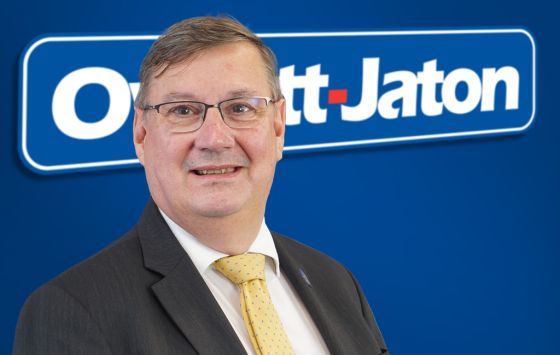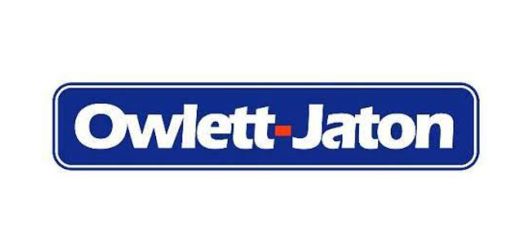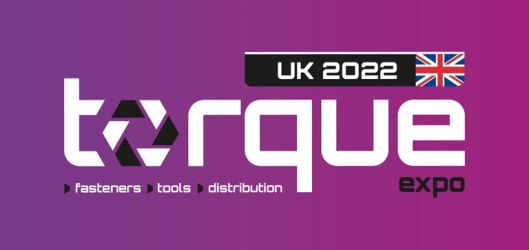
Unifix’s 60th anniversary, anti-dumping, overstocks, prices, China and even recycled fasteners… Torque Magazine has a wide-ranging discussion with Ian Doherty, CEO of the UK’s largest fastener and fixing wholesaler, Owlett-Jaton…
Unifix is hitting 60th anniversary this year, which is a big achievement. Is it correct that there are around 6,000 products in the range? That seems like a sizeable number of SKUs. I guess that is one of the challenges of a fastener wholesaler, to handle that many products?
It’s slightly less than a third of our range. We have a stock range of around 20,000 products and about 30,000 a year that we deal with when you include specials and plating, etc. There will be some businesses that will find that a huge number but for
us, 30,000 products is no issue. We’ve recently been implementing a new ERP system and the consultants we worked with said their last job was on a system with 1.5 million SKUs… which puts things in perspective. If you look at some of the other players in the marketplace, some of the German players have around 100,000 SKUs. Handling so many items is a challenge, but one that we are geared up for and used to.
Sticking with Unifix, one of the big milestones was the revamped packaging...
That was in response to a shift in the marketplace, particularly in the engineering side. The old fashioned trade counters were a hole in the wall and the guy would disappear through it and bring you back a box of bolts, washers, or whatever it was. Now, most of our customers have effectively got a retail environment as their trade counter. The packaging update was to enable us to meet their needs, building a coherent range which made sense to the customers. It’s a full merchandising solution, information panels, that kind of thing. I think we’ll continue to see the industry move towards those retail style environments.
One of the things to consider is the role of the internet. The industry has been very traditional. I’ve been here with Owlett-Jaton for six and a half years now, and the fastener industry is similar to a previous market I worked in, the stationery market – where people buy from people. That personal interaction is very important. So, creating a welcoming, ‘retail’ environment in which someone could come in and say ‘I need one of these’ helps build that customer rapport and relationship. I don’t see us moving to a place where that’s all done remotely.
Covid saw a big move towards video calls but we’re now seeing people getting back face-to-face and acknowledging that relationships are very important.
Jaton Riveting Products was a recent launch for Owlett-Jaton. How’s that going?
It’s continuing to grow extremely well, we’re very pleased with progress. I think it’s been well received in the marketplace. We’ve invested a lot in providing the right level of technical support to go behind what is really quite a technical product. We are very pleased and will continue to invest in it and continue to expand the range. We’ve issued a new catalogue earlier in the year, so anyone who wants one can go to our website and order one.
You’re still producing printed catalogues?
Yes, we are. It’s backed up by all the information on the website, but there is a definite demand for it as a reference tool. People still like a printed catalogue. Online is not quite the same as flicking through a printed catalogue.
Onto wider industry matters, overstocks are obviously something that lots of companies are talking about in the faster world, especially in the last year and into this year as well. Have you got a view on how the situation is developing and also I guess it means there’s not going to be many stock shortages in the next 12 months or so?
I think stocks are rebalancing. It is an inevitability in a very long lead time supply chain that responsiveness to changes in the supply chain are quite slow. You get a whiplash effect… when sales are going up you take a bit more safety stock. It also goes the other way when demand starts to slow. It’s very difficult to see how much stock is in the supply chain as safety stock, as opposed to real demand.
I think that most players in the marketplace recognised in the middle of last year, that stock was definitely increasing and I think people have reacted.
I would think that by end of Q2 we will be back to more normal levels of stock in the marketplace.
Does that mean you’re not going to see any stockouts? No, I don’t think so. We’ve seen imbalanced demand. Our stock levels are very good, but we have still got some products which we are almost hand to mouth. Others were extremely comfortable!
It’s the problem of not having a perfect crystal ball. The stock that is coming in Q1 2023 was mostly ordered in June 2022, and the world’s moved on.
Sticking with that wider supply chain topic, we’ve obviously now got anti-dumping on certain fasteners from China into the EU. For companies such as Owlett-Jaton, supplying Ireland as well as the UK, that must surely have made it more complicated?
It certainly has made it more complex. Ireland is a small part of our total business. We are obviously driven by providing the best commercial solution for Great Britain. So, China has a very large proportion of our outsourcing and that does create issues for selling to both Northern Ireland and Ireland in terms of customs.
We have put additional stock ranges in which are nonChina sourced to enable us to continue to offer our delivered and dutypaid service to Ireland. That’s just a small part of the total range, the range is so broad. Now we have two delivery mechanisms, extra ranges, and yes, it is a pain.
I think we had overcome the Brexit hurdle pretty well. And then antidumping duty was really the icing on the cake and has made it much more complicated. We have a solution. However, I think that for Irish customers, it’s more difficult than it was before.
I think it is pushing some Irish customers towards European suppliers simply because the import requirements are so onerous. They will pay a bit more because they don’t have the resources to deal with all of this administration and complexity.
Carbon border adjustment measure (CBAM) is going to fall into exactly the same box. It covers all products and our customers in Ireland are going to have to deal with it but it will become a challenge for UK, Great Britain-based companies selling into Ireland and the rest of Europe. There’s no money attached to it yet, but it’s another piece of administration from October 2023.
Changing tack a little bit, you’re taking part in the Builders Merchant Building Index (BMBI) reports now? Related to that, do you think it’s important that there is better data on the industry, for example, so the government doesn’t underestimate the size and importance of the faster industry?
Absolutely. Having come into the industry from the outside, I’ve been used to sectors where we’ve had market research, data through trade associations and some indication of how big the market is. Builders merchants are an important channel for us. That BMBI information is very helpful to us in shaping how we do business. Outside the builders merchants it’s a lot less clear.
I would be very supportive of anything that provides better global information. And yes, you’re right, less industry data can lead to governments underestimating the fastener industry – and I think this has been true across the whole of Europe. EFDA has spent a lot of time trying to explain to governments and to the European Commission the importance of the fastener industry and how it holds everything together. It is easy to underestimate the total marketplace. It’s not very glamorous and it’s not top of people’s minds when they are talking about glamorous projects, electric vehicles and Gigafactories and what have you. But nuts and bolts hold them together. I think the government probably massively underestimated the amount of technology that’s in the fastener industry. Anything that helps with understanding the size and scale of the industry is very important.
It is difficult, however. There are importers, distributors and end users, but you’ve also got people who are distributors and importers. People who are end users that are importers because they are so big. If I sell a product to a distributor, then they sell to the end user, what value do you put on that fastener? It’s not straightforward.
Was stability on your 2023 wishlist?
Yes, more than anything else. Over the last three years, we’ve dealt with Covid, Brexit, antidumping duty, the war in Ukraine. It isn’t one major issue, it has just been one thing after another. A little bit of stability would be quite helpful.
Here’s a slightly left field question, about recycled metal. While aluminium is usually more associated with the recycled metal topic, is this something that is on the radar of the fastener world?
I think this area will be driven by environmental pressures. We’re more steel focused, but I think we will see more questions being asked about whether this is virgin steel from a blast furnace? Is it from an electric arc furnace, where it’s a high proportion of scrap, and therefore lower carbon content? So, I think the recycled question piece will emerge more in our marketplace. I think it’ll be more about primary steel manufacture.
Looking ahead, what are your ambitions for Owlett-Jaton for the next year?
Whatever way you look at it, we’re facing a flat economy, at best. Certainly for manufacturing, maybe less so for construction. House building has been slow as house prices have softened but commercial construction feels safe and pretty robust. The government still seems to be pushing ahead with quite a lot of infrastructure. We are not facing a booming market so we should be pragmatic about the future.
We would like to see continued growth in our business. We continue to invest heavily with a lot of salespeople on the road and we’d like to see that continue to build our position and growth in the marketplace.
Businesses generally grow or decline, they rarely plateau. We are fortunate that we are well funded and debtfree so we’re able to continue our investment programme.
For the industry I think UKCA is a ‘shark in the water’. My concern is that the extended deadline will lead some businesses to ignore it in the short term.
In the postGrenfell environment, politically and practically – I know I don’t want to sleep in an unsafe building – I can’t see the government relenting on anything regarding building safety. It will be up to everyone to conform and ensure their products are fully certified. Is there testing capacity to get everything through in time for the deadline? That’s debateable.



